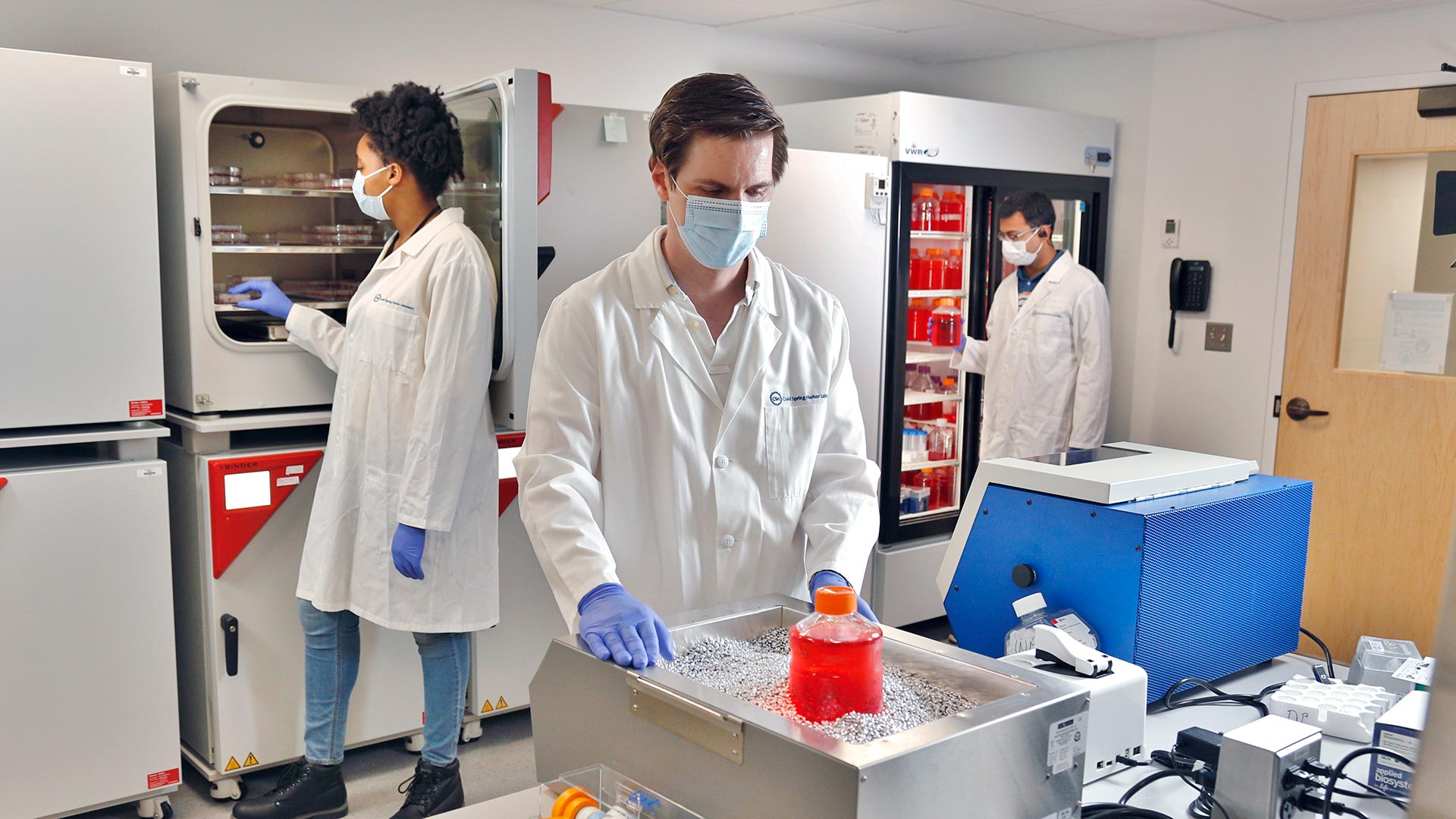Organoid technology has advanced cancer research and is leading to the development of more effective treatments. Organoids are three-dimensional, live tissue models grown from patient tumors. The fact that organoids are alive makes them powerful as tools to understand a tumor’s response to a specific treatment. If a treatment is effective in the organoid model, it might predict a favorable patient response. Cold Spring Harbor Laboratory Cancer Center Director David Tuveson, M.D., Ph.D., is an organoid pioneer, championing a new 2,200 square-foot facility dedicated to deploying this game-changing technology.
Opening its doors fall 2020, CSHL’s organoid facility has three full-time scientific staff. Facility Manager Dennis Plenker, Ph.D., refers to the unique organoid operation as a “living biobank.” Plenker explains that, “Up to now, cancer research has relied on patient tumor samples that are dead tissue, but with organoid technology, the patient samples are living and renewable.”
The CSHL Cancer Center shares organoids it develops with CSHL faculty and researchers outside the Laboratory. This shared resource facility has already produced 200 human neoplastic organoids with support from the National Cancer Institute (NCI). Half of those organoids were generated at CSHL under contract with the NCI’s Human Cancer Models Initiative as a resource for scientists around the world.
Later this year, the CSHL organoid facility will grow and test approximately 150 new organoids as part of a clinical trial to evaluate two chemotherapy regimens for pancreatic ductal adenocarcinoma (PDAC). The goal of the trial, called Pancreatic Adenocarcinoma Signature Stratification for Treatment (PASS-01), is to personalize therapy based on how an individual patient’s organoid responds to the treatments. Sponsored by the University Health Network, Toronto, CSHL’s collaborators are Johns Hopkins University, Ontario Institute for Cancer Research, Dana-Farber Cancer Institute, Memorial Sloan Kettering, Northwell Health, and Stand Up to Cancer (SU2C). The trial is funded by the Lustgarten Foundation, Pancreatic Cancer Canada, and SU2C.
“We are grateful for the philanthropic support CSHL received from TD Bank, Wasily Family Foundation, and F.M. Kirby Foundation to build out the CSHL organoid facility,” said Tuveson. “The Lustgarten Foundation and SU2C have been crucial supporters of organoid technology in pancreas cancer research.”
Written by: Dagnia Zeidlickis, Vice President, Communications | zeidlick@cshl.edu | 516-367-8455

